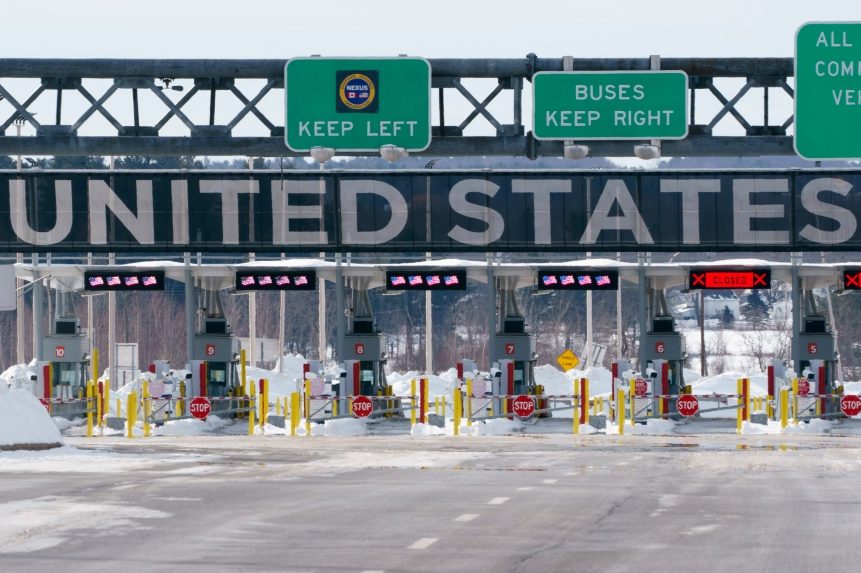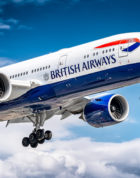In January 2021, Canada implemented a new testing requirement, in which every traveller needs to provide a negative COVID-19 molecular test taken within 72 hours of departure in order to enter the country.
Today, this policy has been relaxed for trips outside the country that are 72 hours or less, starting on November 30, 2021.
As of this date, Canadian travellers only need to complete the ArriveCAN declaration without providing proof of a negative COVID-19 test to airline officials or CBSA agents when returning from shorter trips.
COVID-19 Test No Longer Required for Trips of Less than 72 Hours
With the US land border having opened on November 8, 2021, many Canadians are once again making weekend trips for shopping, visiting family, and picking up items from their PO Boxes.
However, getting a negative COVID-19 molecular test has often proven cumbersome, as test results are often not returned until 24–48 hours later.
For shorter trips, travellers had the option of taking the COVID-19 test in Canada for re-entry less than 72 hours later, but this was a frequent source of confusion. After all, the goal of the testing requirement was to protect against imported cases of COVID-19, and taking a test in Canada prior to departure defeats the purpose.
Therefore, the removal of the testing requirement for shorter trips of less than 72 hours makes a lot of sense, especially considering that travellers who enter the United States and return to Canada will need to be fully vaccinated anyway.
With this exemption in place, no testing will be required for quick trips to the United States: the US does not require testing to enter at the land border, while Canada will not require testing if your return is within 72 hours. Black Friday shopping spree across the border, anyone?
Similarly, Canadians would be able to fly to, say, Mexico for a weekend without having to take a test at all. (Note that flying to the US will still require at least an antigen test at the start of the journey.)
Note that this exemption only applies to fully vaccinated Canadian citizens, permanent residents, and individuals registered under the Indian Act. Thus, international students who make quick trips across the border (for example) will still need a negative molecular test to return to Canada.
List of Eligible Vaccines to be Expanded
Also effective November 30, 2021, the list of eligible COVID-19 vaccines for Canadian travellers to return to Canada without quarantine, and for foreign travellers to enter the country, will be expanded to match World Health Organization (WHO) guidelines.
Currently, only Pfizer-BioNTech, Moderna, Astra-Zeneca, and Johnson & Johnson vaccines are approved by Health Canada for these purposes.
Starting November 30, the Chinese-developed Sinopharm and Sinovac vaccines, as well as the Indian-developed Covaxin vaccine, will be added to the list of eligible vaccines for quarantine-free entry. As with the existing vaccines, travellers will need to have received their full course of vaccines at least 14 days prior to entering Canada.
This is a very welcome development for Canadians with loved ones from afar who have not been able to visit Canada due to the type of vaccine that has been available to them.
Many countries around the world have had limited access to the Health Canada-approved vaccines thus far, so Canada’s alignment with the WHO Emergency Use Listing will allow much more of the world to come to Canada once again for family, business, and leisure purposes.
Will Canada Relax the PCR Testing Requirement in Full?
Travel in Canada has been slowly but surely ramping up in the second half of 2021, beginning with the relaxed quarantine to fully vaccinated returning travellers, US residents, and other foreign visitors in quick succession, followed by the vaccine mandate for air travellers, and then today’s announcement of relaxed testing requirements for short trips.
As we look towards 2022, many Canadians are certainly hoping for a complete removal of the negative molecular testing requirement for returning to the country, or at least a relaxation of the policy to allow for cheaper antigen tests instead.
Today’s move towards relaxing the requirement for shorter 72-hour trips is certainly a step in that direction. After all, this is the first sign of the Government of Canada’s willingness to loosen the testing requirement in any capacity since it was introduced at the start of the year.
If the COVID-19 picture in Canada remains stable going into the spring of 2022, I’d certainly expect some movement on that front as more and more Canadians start to entertain the thought of travelling internationally again.
Conclusion
As of November 30, 2021, Canadian travellers will no longer be required to complete a negative molecular COVID-19 test in order to enter the country if they’ve been away from Canada for 72 hours or less.
This is a very much a welcome and expected change given the stable transmission rates of COVID-19 in Canada, and will make it significantly easier to take single-day or weekend transborder trips to the US or even long weekends in Mexico or the Caribbean – keeping in mind that submitting your ArriveCAN declaration is still required.
With the way that late 2021 has unfolded in terms of favourable travel policies, I certainly anticipate 2022 to be the year that “revenge travel” really begins to take off.
















Can we leave on Nov 28th and come back on Nov 30th ?
Or trip needs to start on Nov 30th?
Any idea how the 72 hours is measured for air travel? We have a trip that is 70 hours from touchdown to takeoff but considerably longer than 72 hours from takeoff in Canada to touchdown in Canada. Logically, I think the more favorable way makes sense, as it is the only period of potential exposure to unvaccinated people, but I think logic probably does not prevail.
Is it worthing to buy now RT-Lamp Covid-19 for travel at the end of january?
As things stand, if your trip is longer than 72 hours, you’ll still need it.
I’m totally speechless to be honest 🙂 🙂 🙂
What kind of twisted logic can bring a person to saying: ‘Therefore, the removal of the testing requirement for shorter trips of less than 72 hours makes a lot of sense’?
BTW which one makes more sense Ricky, the unpredictable and illogical Canadian policy or Chinese? Pretty sure you’ll say they are both logical, not to offend anybody. 🙂
What a smart pandemic causing virus we have, you can only get it after 72 hours. Very logical indeed.
No need to be speechless just yet, the PCR test is only being removed for shorter trips.
FINALLY…. it was about time